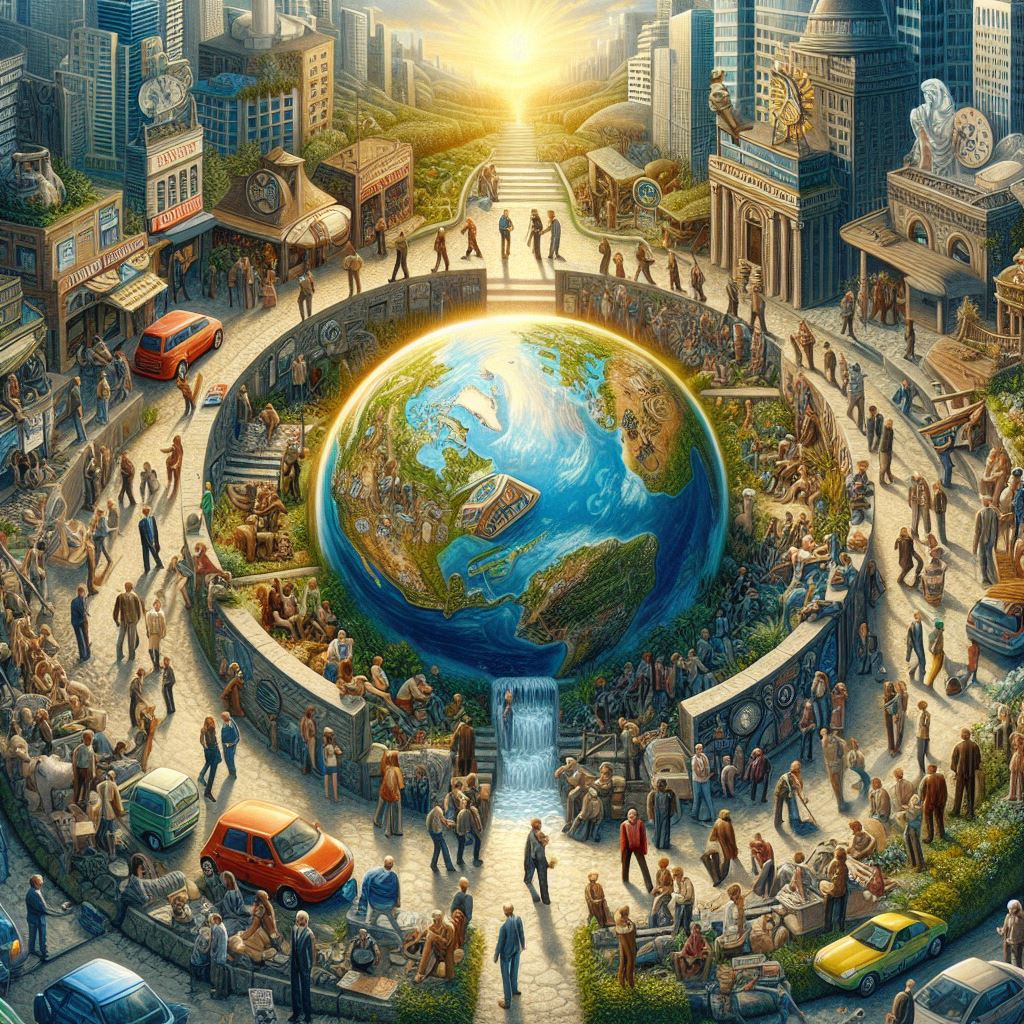
INTRODUCTION
“MYP individuals and societies encourages learners to respect and understand the world around
them and equips them with the necessary skills to inquire into historical, contemporary,
geographical, political, social, economic, religious, technological and cultural factors that have an
impact on individuals, societies and environments. It encourages learners, both students and
teachers, to consider local and global contexts. MYP individuals and societies incorporates
disciplines traditionally studied under the general term “the humanities” (such as history and
philosophy), as well as disciplines in the social sciences (such as economics, business
management, geography, sociology and political science).”
GENERAL OBJECTIVE
To develop critical thinking by analyzing social science in a way that will peak their interest as
members of society and have a positive impact in their respective contexts.
METHODOLOGY
An IB education aims to transform students and schools as they learn, through dynamic cycles of inquiry, action
and reflection. Teachers enable and support students as they develop the approaches to learning they need – for
both academic and personal success.
Teaching and learning in the IB celebrates the many ways people work together to construct meaning and make
sense of the world. An IB education empowers young people for a lifetime of learning, independently and in
collaboration with others.
CONTENT AND CONCEPTS
Unit 1:
Political Geography - What is Demography? - What is Population? ●What is a census? - How is the population structured? ●Population Pyramid ●Population Pyramid Types - Demographic Transition Model - Migration ●Push and pull factors ●Types of migration
Unit 2:
LPVMUN - Portfolio Development. - Debate simulacrum. - Final Performance.
Unit 3:
Revolutions in the VIII Century - The Enlightenment - Industrial Revolution: First Phase (Capitalism) - The French Revolution: Social clash - Bourbon Reforms: Spaniard Colonial Crisis - "Reconquista" and Hispanic Independence. - Idenpendent Colombia
Unit 4:
Globalization - What is globalization? - Causes of Globalization - Globalization in the Global Economy - What are transnational corporations? - Economical systems: ● Capitalism and socialism. ● Neoliberalism. ● Mixed Economies
Unit 5:
Colonialism and Human Rights
- Colonization of Africa
- Colonization of Asia
- Growth of European economy through the exploitation of Africa and Asia colonies
- Rights of the minorities
- Human Rights violations in Africa, Asia and American colonies
COMPETENCIES / ABILITIES TO DEVELOP
- Knowing and understanding 25%
i. use a range of terminology in context
ii. demonstrate knowledge and understanding of subject-specific content and concepts, through descriptions, explanations and examples
- Investigating 25%
i. formulate/choose a clear and focused research question, explaining its relevance
ii. formulate and follow an action plan to investigate a research question
iii. use methods to collect and record relevant information
iv. evaluate the process and results of the investigation, with guidance.
- Communicating 25%
i. communicate information and ideas in a way that is appropriate for the audience and purpose
ii. structure information and ideas according to the task instructions
iii. create a reference list and cite sources of information.
- Thinking critically 25%
i. analyse concepts, issues, models, visual representation and/or theories
ii. summarize information to make valid, well-supported arguments
iii. analyse a range of sources/data in terms of origin and purpose, recognizing value and limitations
iv. recognize different perspectives and explain their implications.